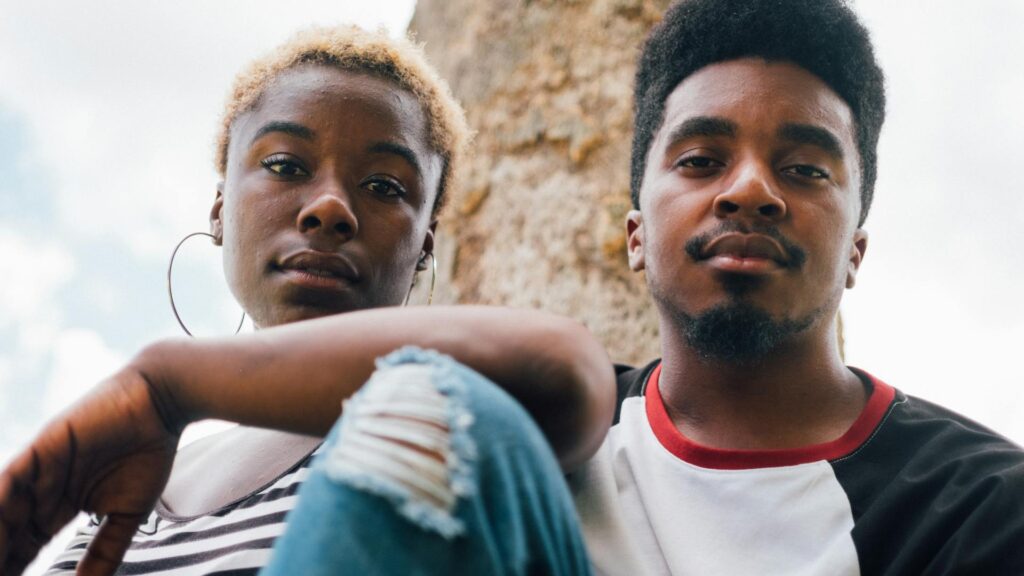Every July, the U.S. dedicates a month to Black, Indigenous, and People of Color (BIPOC) communities and their mental health. This important initiative tackles the stigma surrounding mental health, promotes culturally appropriate care, and brings awareness to the unique struggles these groups face. It’s a time to have open conversations about mental health and find resources that work well for different cultures.
The term BIPOC came about because we needed a more inclusive way to talk about race. “Minority” just means a group that isn’t the majority, and it doesn’t really show the specific ways Black and Indigenous people have been treated unfairly throughout U.S. history.
BIPOC serves as a powerful umbrella term, uniting diverse communities of color who share experiences related to race and ethnicity. This includes Latinx, Asian Americans, and Native Hawaiian/Pacific Islanders.
It’s also important to recognize the intersection of BIPOC and LGBTQ+ identities. Many LGBTQ+ individuals also identify as BIPOC, facing unique challenges due to this overlap. This is why terms like Queer, Trans, Black, Indigenous, People of Color (QTBIPOC) have emerged to acknowledge these interwoven experiences.
History of BIPOC Mental Health Awareness Month
BIPOC Mental Health Awareness Month started in 2008 as National Minority Mental Health Month, thanks to Bebe Moore Campbell, a strong advocate for mental health awareness in Black communities. The name was later changed to BIPOC to recognize the mental health challenges faced by a wider range of Black, Indigenous, and People of Color communities.
During this month, schools, community centers, and other groups get together to teach people about these challenges. They also hold events to encourage BIPOC individuals to seek help if they need it. It’s all about making sure everyone feels okay talking about mental health. BIPOC communities learn that it’s okay to ask for help, no matter your background.
Current Mental Health Disparities
BIPOC adults are less likely to receive routine treatment for mental health disorders. BIPOC communities face unique struggles in getting mental health care. “Communities of color experience mental health challenges at rates comparable to their white counterparts yet encounter distinct obstacles when seeking necessary care. These barriers highlight deep-rooted disparities within the mental health system, similar to issues observed in the criminal justice system, where vulnerable individuals can face further harm,” says Dr. Tanye’ Tyler, a Doctor of Social Work (DSW) and Licensed Clinical Social Worker (LCSW) with Grow Therapy.
Racism has contributed to these disparities in several ways:
- The healthcare system can lack cultural understanding, and racism itself – outside of the healthcare system – causes constant stress. This can lead to feelings of mistrust and discourage BIPOC individuals from seeking help.
- Poverty, discrimination, and violence can impact BIPOC communities, creating mental health struggles.
- In some BIPOC cultures, mental illness carries a strong stigma, making it harder to get help.
Communities of color experience mental health challenges at rates comparable to their white counterparts yet encounter distinct obstacles when seeking necessary care.
- Dr Tanye' Tyler, DSW & LCSW
Dr. Tyler explains that “addressing these issues requires a multifaceted approach that includes dismantling systemic barriers, fostering culturally responsive care, and reevaluating the role of law enforcement in mental health crises. Only through concerted efforts to rectify these disparities can we hope to create a mental health system that truly serves all communities equitably.”
Cultural Sensitivity in Mental Health Care
Culturally competent mental health care can transform BIPOC communities. It recognizes and respects the unique backgrounds, beliefs, and experiences of BIPOC individuals. This approach builds trust, leading to more effective treatment.
What Does it Look Like?
Dr. Tyler notes that “a pervasive wariness towards the medical profession contributes to the stigma surrounding mental health care among these communities. This skepticism is often rooted in historical and ongoing experiences of feeling unheard and invalidated by healthcare providers.”
Culturally sensitive providers aim to approach treatment by earning about their client and their needs through the lens of how race, ethnicity and culture influence the individual and their mental health. They tailor their approach to:
- Build trust and rapport with patients.
- Address cultural factors impacting mental health.
- Promote healing within a patient’s cultural background.
How Can Professionals Improve?
There are many ways providers can become more culturally competent:
- Attend workshops and get ongoing cultural competency training.
- Reflect on personal biases and actively understand different cultures.
- Partner with community organizations to understand the needs of BIPOC populations.
- Receiving ongoing consultation around meeting the cultural needs of our clients to help them identify their blind spots and personal biases.
Advocacy and Support
Organizations like the National Alliance on Mental Illness (NAMI) and Mental Health America are champions for BIPOC mental health. They hold events and campaigns to raise awareness and connect people with resources.
Many community organizations offer culturally specific support groups and services. Online resources and mental health hotlines also provide valuable support for BIPOC individuals.
Notable campaigns include NAMI’s “You Are Not Alone” campaign, which features personal stories and encourages BIPOC individuals to seek help. Mental Health America’s BIPOC Mental Health Month Toolkit provides resources for raising awareness and supporting mental health in diverse communities.
Therapy and Treatment Approaches
Mental health treatment for BIPOC individuals should be tailored to address the unique needs of each person. Most often, this includes using evidence-based therapies and cultural adaptations of these modalities. Here are some common approaches:
Evidence-Based Therapies
- Cognitive behavioral therapy (CBT): CBT helps identify negative thoughts and behaviors causing emotional distress. For BIPOC individuals, this modality offers an opportunity to receive support around identifying and challenging negative beliefs they may have internalized about themselves based on aspects of their identity or discrimination they may have experienced. CBT also examines the role of our behaviors in our emotional health and encourages BIPOC clients to implement a strong, personalized self-care practice.
- Dialectical behavior therapy (DBT): DBT teaches skills for managing difficult emotions. Working with a DBT therapist can help you identify triggers to big emotions, such as anger, hurt and abandonment, as well as give you concrete skills to self-soothe, emotionally regulate and stay connected with yourself in stressful situations.
- Interpersonal therapy (IPT): IPT focuses on improving relationships and social functioning. It can help identify and access supportive social networks within the BIPOC community.
Culturally Adapted Therapy Approaches
Culturally adapted therapy acknowledges and respects the cultural background, values, and experiences of BIPOC individuals. This can involve:
- Incorporating cultural traditions: Therapists might use metaphors, stories, or healing practices from the client’s cultural background to enhance the therapeutic process.
- Addressing racial trauma: Therapy provides a safe space to explore racism’s impact on mental health. This helps develop healing strategies.
- Using culturally relevant language: Therapists should be mindful of using respectful language about the client’s cultural background.
Mental health professionals can provide effective and supportive care for BIPOC individuals. Therapists who identify with BIPOC communities can provide invaluable support.
Connect with Culturally Sensitive Therapists
Take charge of your mental well-being this July during BIPOC Mental Health Awareness Month. Many community groups offer culturally-focused support groups for BIPOC individuals. Grow Therapy’s online platform can connect you with BIPOC therapists who understand your background and can provide sensitive care. Remember, you’re not alone.

